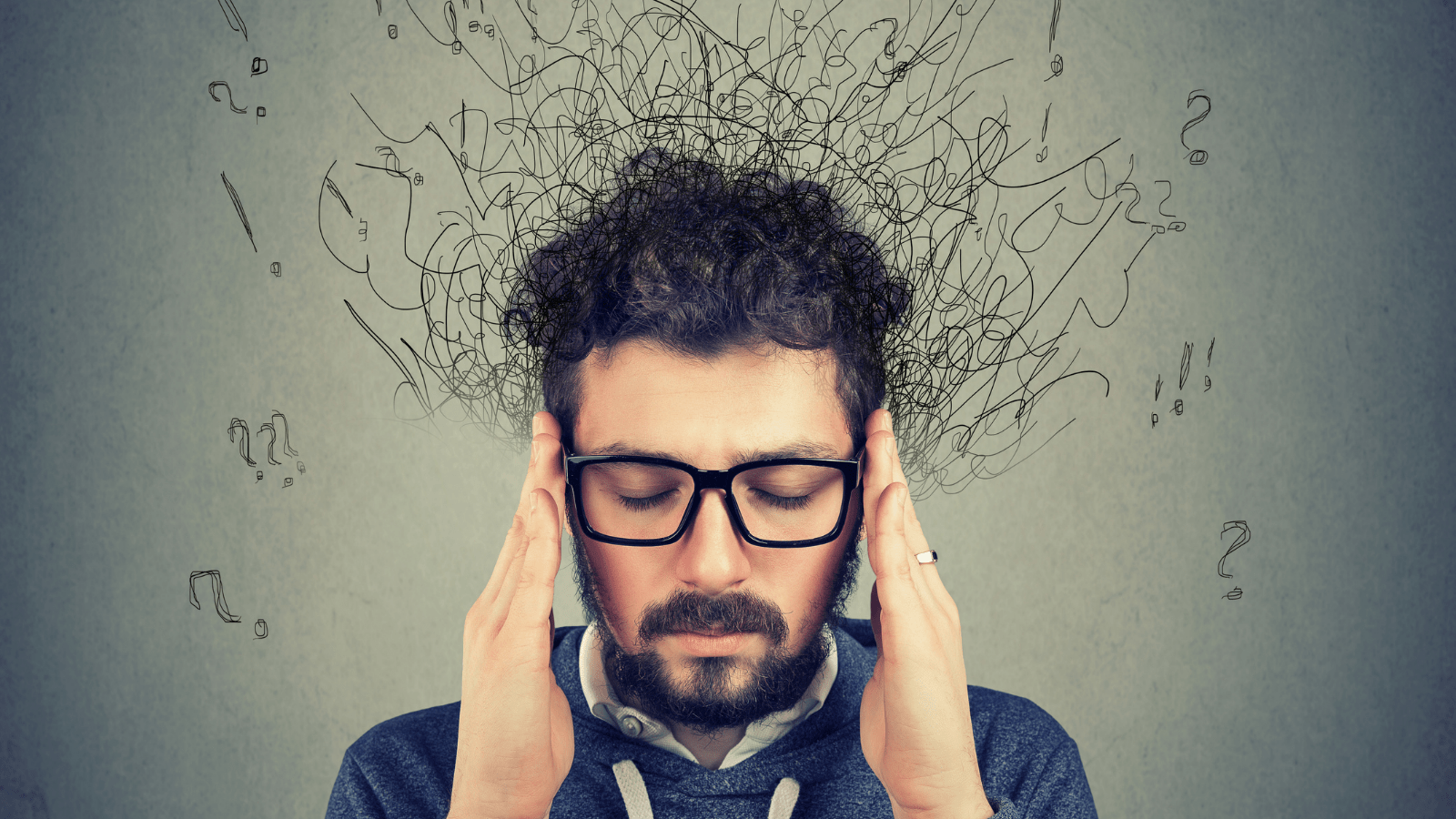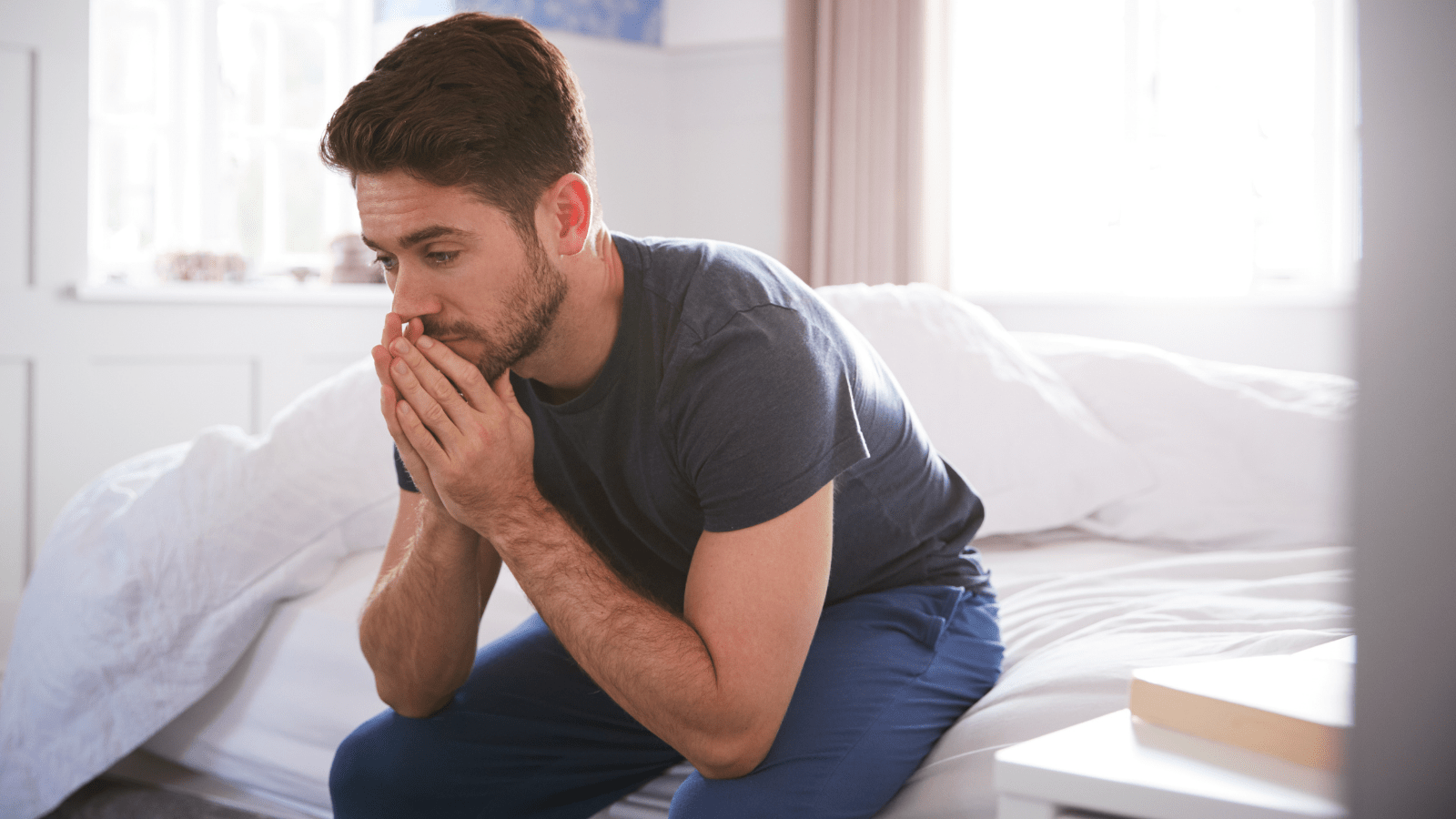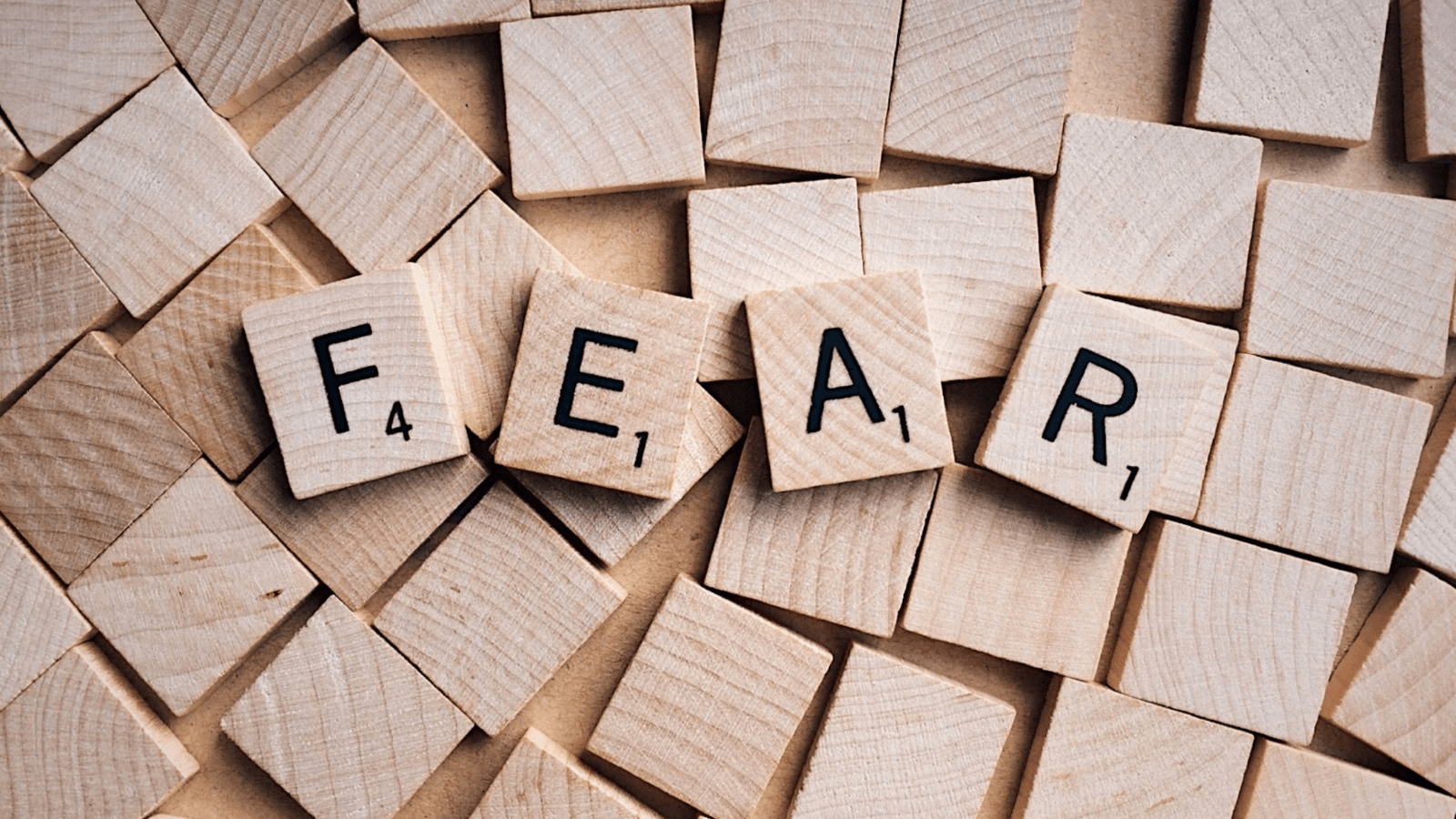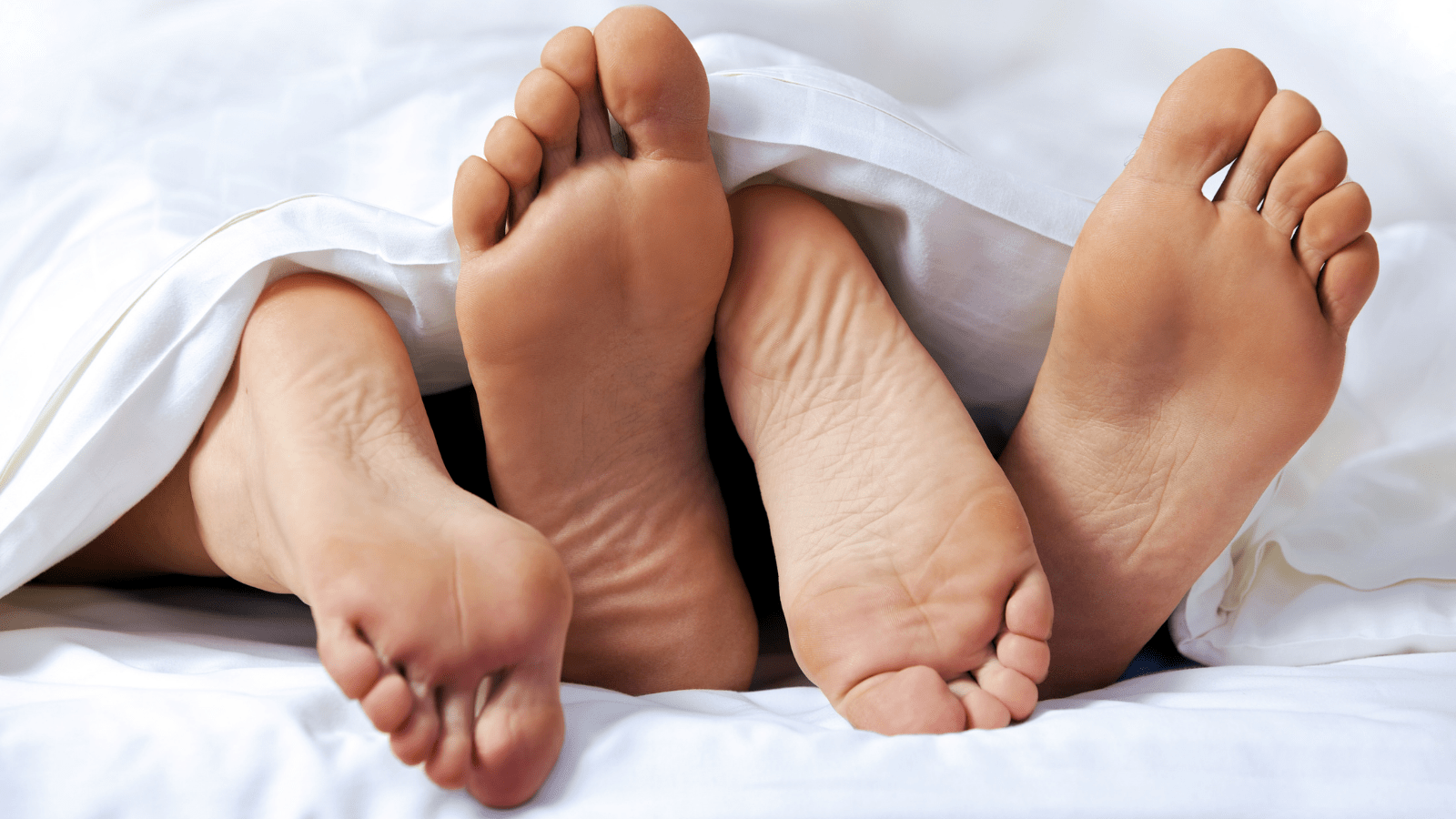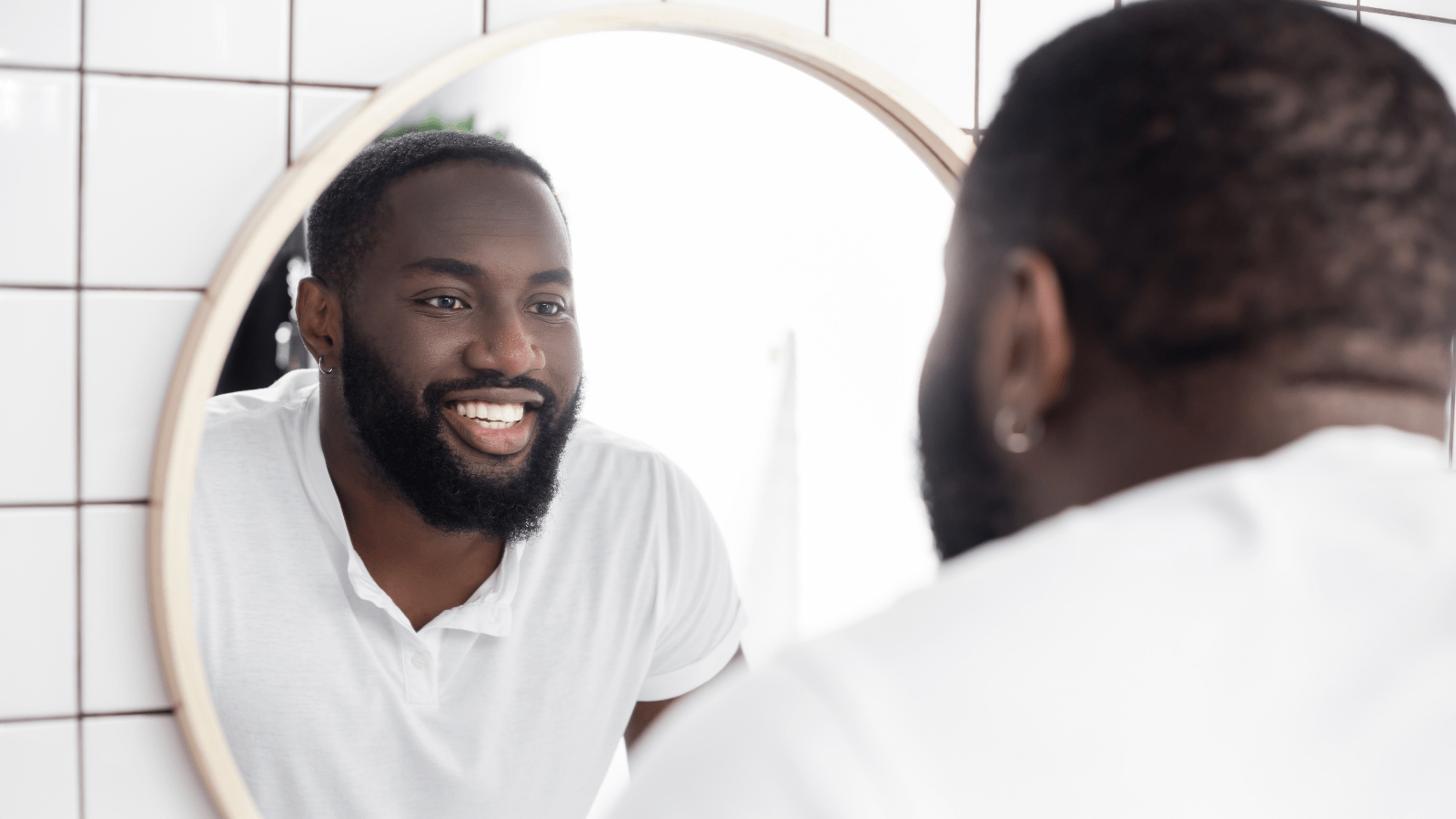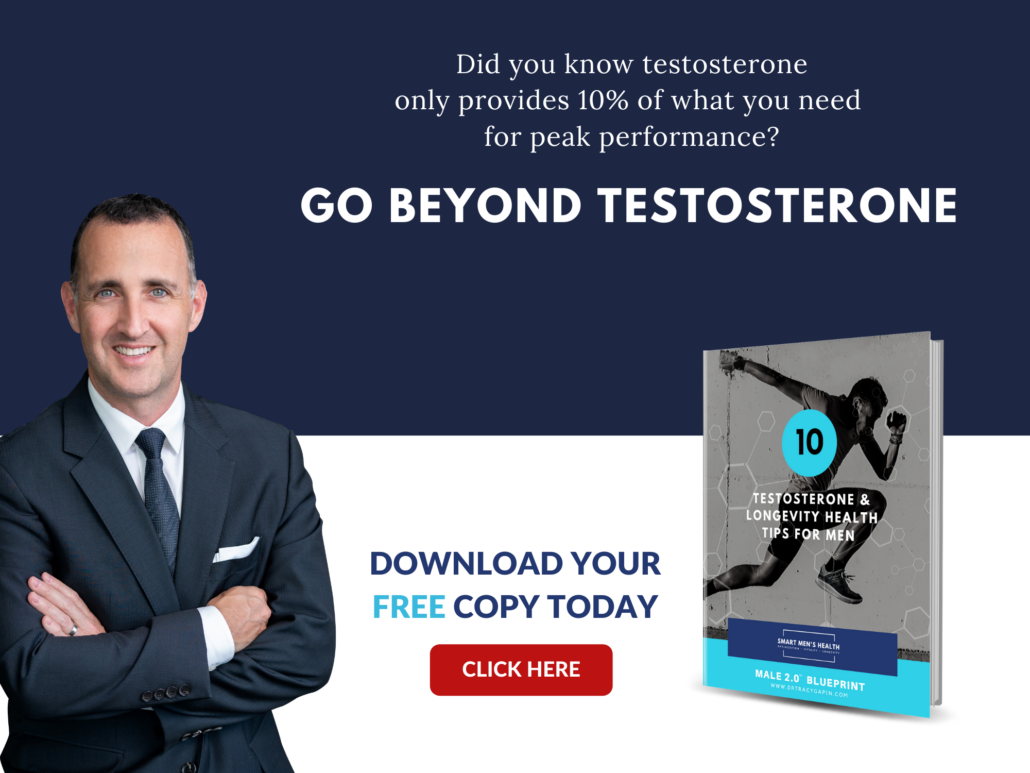
If you want to learn how to last longer in bed or extend your stamina in the bedroom, you’re not alone. Almost every guy wants to last just a bit longer. Stamina can help you please your partner, grow your relationship, boost your self-confidence, burn more calories, and have a more satisfying sex life overall.
But at least 35% of men have problems with premature ejaculation. In fact, The New Naked: The Ultimate Sex Education for Grown-Ups reported that 45% of men—even those not diagnosed with PE—orgasm in under two minutes. This can cause psychological and relationship concerns for a number of men, and it may even signal an underlying health concern.
But even those with great endurance want more stamina.
So what can you do to improve your stamina in a healthy (and even sexy) way?
What causes premature ejaculation?
The average duration of orgasm for men is anywhere from 3 to 13 minutes. “Short” sex sessions aren’t a cause for concern. However, premature ejaculation, whether diagnosed or not, can damage your self-esteem and relationship quality.
PE can stem from a variety of physical, emotional, and psychological causes that can be hard to pinpoint. Physical causes of PE include low testosterone and erectile dysfunction. Low T levels can create low libido and reduced energy, which can drastically minimize sexual stamina. Erectile dysfunction has its own branch of causes and concerns, often stemming from psychological stressors or worries.

PE can also often stem from psychological concerns, including performance anxiety. If a man feels he isn’t able to please his partner in bed or feels ashamed for some reason, he will usually tense up and get anxious. This can actually cause him to orgasm faster as the body’s way of relieving this uncomfortable tension.
Thankfully, though, there are ways to overcome these physical and psychological concerns to improve your stamina in bed.
Reduce your anxiety.
Anxiety is one of the major causes of PE, so reducing anxiety is the first step to overcoming fast ejaculation times. It’s common for men to get too “in their heads” during sex. You basically get so nervous about finishing too quickly that it actually sneaks up on you—and you don’t even get to enjoy it as much.
Anxiety disconnects the mind and body so you don’t even realize what you’re physically feeling.
Thus, it’s important to try to relax your mind and body before and during sex.
Yoga
Relaxation in the bedroom starts outside the bedroom. You want to minimize your life stressors while partaking in relaxing hobbies like meditation and yoga. This can help put your mind in a more peaceful and calm state, which allows your body to be more receptive to sex.
Plus, studies have shown that a mind-body connection through yoga can actually lead to more intense orgasms.
Yoga can also help improve lower back pain and flexibility, which both play a role in sexual endurance and stamina.
Find some of my favorite yoga for ED here.

Breathing
One of the best ways to relax your body in both the short- and long-term is through breathing exercises. Deep breathing can help put you in a meditative state to lower cortisol and stress. Cortisol can actually reduce testosterone, which could lead to ED and lowered libido.
Breathing not only helps reduce stress, but it also helps transport oxygen to your muscles. This influx of oxygen helps the muscles relax—including the muscles in the penis. This relaxation can help prevent you from tensing up and having an orgasm too quickly.
Below are three breathing exercises specifically designed to boost your sexual stamina while reducing stress, boosting energy, and minimizing performance anxiety.
Simple breath
Lie on your back. Bend your knees up and rest them comfortably together. Feet should be hip-width apart and flat. Put one hand on your stomach and the other on your heart. Close your eyes. Inhale and feel the way your belly and heart rise. Exhale, and feel them lower. Hold for 10 seconds and release for 10 seconds. Do at least 25 breaths.
This will help you find the rhythm of your breath. You can then call on this belly-breathing technique during sex if you find yourself tense and anxious. Doing these sorts of meditative breathing exercises not only helps improve your relaxation and endurance—but it can actually make you more connected with your partner as well.
Rocking breath
Sit on a block or folded blanket so you’re slightly raised from the floor. Your legs should be folded comfortably underneath you. Place your hands at your hips, as if in a superhero power pose.
Breathe as you did in the first exercise while rocking your pelvis back and forth gently. Move forward on the inhale and backward on the exhale. Increase your speed slightly after each inhale-exhale cycle.
This can help push energy to your pelvis to improve blood flow and muscular strength.
Circular breath
In the same position and breathing in the same rhythm, move your hips in a circular motion. Move your ribcage over your pelvis as you inhale and exhale. Don’t move your lower body; focus on the movement of your ribcage. This circular motion can help open up your pelvis for improved energy and blood flow.
Strengthen your body.
Sex takes a bit of athletic performance. Endurance in the bedroom starts by building your athletic endurance.
You want to especially focus on strengthening your lower back and abdominals. Most sex positions require the use of the lower back muscles, so pain in this area can lead to poor performance and shorter duration in the bedroom. You also need a strong abdominal core for continuous thrusts. Building your core can also help improve stamina, endurance, and stability.

Exercises for your lower back:
- Superman
- Child’s pose
- Kneeling hip flexor stretch
- Glute bridge
- Front fold
- Trunk twist
Exercises for abdominals:
- Plank and side plank
- Exercise ball crunches
- V-ups
- Reverse crunch
- Flutter kicks
- Bicycle kicks
Along with strengthening your muscles, you also want to build your energy levels. High-intensity interval training (HIIT) uses bursts of cardio and strength training to help blast fat and improve endurance. Because you’re working in intervals, your body uses a short recovery time to build up stamina to get ready for the next interval. Often, sex works in a similar way with intervals and periods of faster thrusting and slower movement.
Plus, HIIT has also been shown to increase testosterone levels. Raising your T through exercise is a great way to improve your libido and energy in the long-term.
Recommended Read: 9 Exercises To Beat ED And Have Better Sex
Pelvic Floor Exercises
Developing your pelvic floor muscles can help support harder and longer erections as well as a healthy prostate and bladder and bowel functions. One study found that a 12-week course of pelvic floor exercises increased the average ejaculation time from 31.7 seconds to 146.2 seconds—an increase by nearly four times! A second study found that keel exercises restored normal erectile function to 40% of men suffering from erectile dysfunction.
Pelvic floor exercises help you control the muscles in your pelvic region, so you have greater regulation of your orgasms and sensations.
How to do pelvic floor exercises:
- Find your pelvic floor muscles. When you’re urinating, stop midstream. This can help you become aware of the feeling of the pelvic muscles. (Don’t do this too often or you could hurt your bladder.)
- At rest, tighten these muscles for five seconds. Then release for five seconds. Repeat ten times. As you practice, you can hold and release for longer intervals.
- You should alternate longer intervals with pulsing intervals. Quickly contract and release these muscles for 10 repetitions with a 10-second rest. This variation will help grow the muscle faster.
I recommend doing these exercises three times daily. You can do them anywhere at any time—so you can improve your sex life on the go! Try doing the exercises in different positions for different resistance.
Boost your body with diet.
Studies have shown that a healthy diet can actually help improve stamina and sexual function. Processed food, refined sugar, and dairy have been linked to low energy as well as changes in testosterone and hormone production.
Fruit provides a sustainable source of energy, so you don’t get the same sort of sugar crashes like you would from processed sugar. Bananas are high in potassium, which plays a key role in energy and hormone production.

One study found that vegetarians have twice the stamina as meat eaters. They found that athletes on a vegetarian diet could withstand greater physical feats for longer periods of time than their meat-eating counterparts.
Recommended Video: 3 Prostate Healthy Foods
Recommended Read: 13 Natural, Edible Vasodilators To Treat Your ED
Improve stamina during sex.
Now it’s game time. You’re in the bedroom. How can you improve your stamina right now?
Foreplay
Foreplay is an absolute must. It preps your mind and body for an “extended stay” with sex. The slower you ease into sex, the longer you’ll be able to last. A slow start means a slower finish.
Focus on meditative, deep breathing during foreplay. This will help your penis adapt to the excitement and connect your mind and body before penetration.
Partner-first

Focus on your partner’s orgasm before your own. You may want to start with oral sex as opposed to penetrative sex. Helping your partner orgasm first helps you build up excitement and connection with your partner.
It also makes you less anxious, because you know your partner has already had some level of sexual satisfaction. It eliminates the stress and pressure so you can enjoy your own orgasm better. This works especially well for men suffering from performance anxiety.
Start/stop method
When you’re close to orgasm, try the start/stop method. Often called “edging” in a casual context, this is when you stop thrusting when you’re close to orgasm. This trains your brain to better control your orgasm response in response to different physical sensations.
When you feel close to orgasm, slow down or stop thrusting. Take a few deep breaths. You may want to use this recovery period to focus on your partner’s pleasure. Then, after the sensation has died down, you can continue.
Slowing down in this way helps relieve tension while concentrating on the sensation. It also helps your body recalibrate to continue with greater endurance.

Sex positions
Certain sex positions can actually reduce your sensation to help delay orgasm. These positions usually reduce penetration depth or change the area of pressure. Full penetration stimulates the underside of the penis, especially the frenulum, which what causes men to ejaculate quickly.
Positions that can help you last longer:
- Woman on top
- Spooning (laying on side)
- Modified doggy (partner on stomach, not knees)
- Perpendicular
Condoms
Condoms help reduce the sensation, which can delay orgasm and help you last longer. (Plus they help guard against STDs and unwanted pregnancy.) Some condoms are made thicker to actually help extend your stamina by reducing stimulation, like Trojan’s “extended pleasure” or Durex’s “performax.”
Masturbate
Some men find it helpful to masturbate several hours before engaging in planned sex. Masturbation can help boost testosterone levels, so you’ll have a stronger libido and sex drive when you move into the bedroom with your partner. It also removes pent up sexual tension so your muscles feel more relaxed when it’s time for sex.
Masturbation can also help release your first orgasm. After ejaculation, your body needs time to recover. This is called the “refractory period.” This recovery period can actually lengthen your next ejaculation time. (This works in a similar way as HIIT.)
If you don’t want to masturbate or the sex is spontaneous, communicate with your partner that the first round may be fast –but the second round you’ll focus on their pleasure. This communication can help you feel less anxious so you can focus on your connection and sensation during sex.
Recommended Read: 8 Fun Ways To Naturally Increase Your Libido
Don’t use pills or sprays.
Viagra and other pills can make you last awhile… but they’ll hurt you in the long run. These pills mask the symptoms of ED without getting to the root of the problem. Your body actually starts to get dependent upon these meds, and you’ll find that you ejaculate faster or can’t get an erection at all the more you use the little blue pill.
You also want to avoid de-sensitizing sprays. These are local anesthetics that help desensitize your penis to reduce sensation and help you last longer. However, these can have a number of concerns and side effects. If these sprays aren’t applied properly, they can transfer to your partner for an unpleasant experience. You may also find they desensitize you so much that you can’t stay erect long enough for sex.
Never use drugs or alcohol to last longer. Although your lowered inhibitions may help your penis relax and reduce your endurance, this is not a sustainable approach to healthy sex.
Conclusion
If premature ejaculation is interfering with your sexual satisfaction and relationship, it’s time to do something.
You don’t have to go it alone.
With The G1 Performance Health Program, you’ll get in-depth tricks to boost your sexual and overall wellness in weeks!

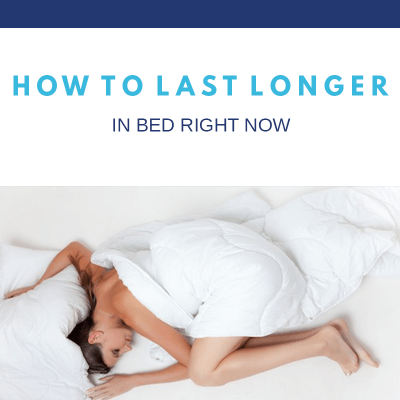
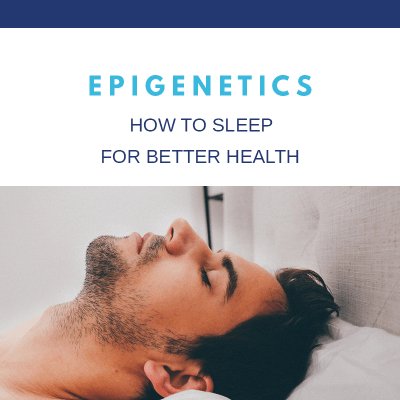









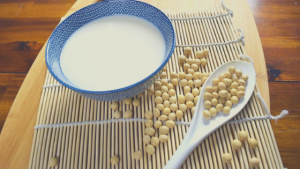

























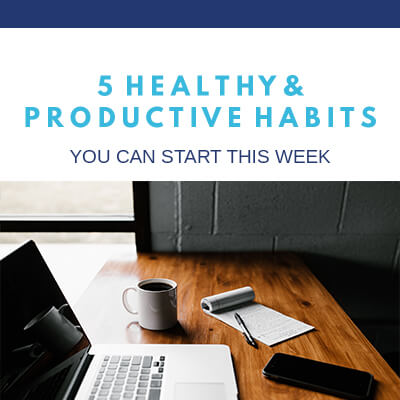









 In Male 2.0™, Dr. Tracy Gapin has turned everything we once thought we knew about men’s health and performance upside down. The old model of how to be “a man” is broken. A man who works himself to death. Unfortunately, a man who tries to NOT get sick but isn’t really healthy either. And a man who takes a pill for every ill but is never really cured. That was Male 1.0. Now, imagine being THE MAN ─ owning your performance in the bedroom, the weight room, and the boardroom. Living a fully optimized life. Becoming limitless. This is Male 2.0!
In Male 2.0™, Dr. Tracy Gapin has turned everything we once thought we knew about men’s health and performance upside down. The old model of how to be “a man” is broken. A man who works himself to death. Unfortunately, a man who tries to NOT get sick but isn’t really healthy either. And a man who takes a pill for every ill but is never really cured. That was Male 1.0. Now, imagine being THE MAN ─ owning your performance in the bedroom, the weight room, and the boardroom. Living a fully optimized life. Becoming limitless. This is Male 2.0!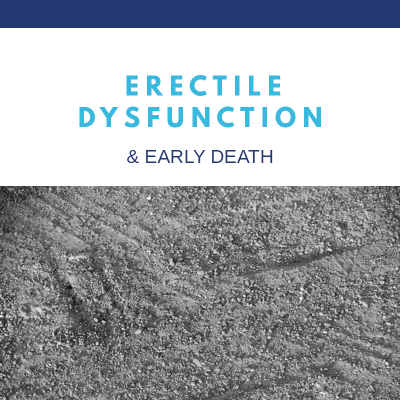










 legumes, beans, and some dairy. Often, when we think of a high-protein diet, we think of eggs, nuts, and lots of meat like chicken and beef.
legumes, beans, and some dairy. Often, when we think of a high-protein diet, we think of eggs, nuts, and lots of meat like chicken and beef. 

 restoring muscle glycogen storage for the fastest recovery process.
restoring muscle glycogen storage for the fastest recovery process.

